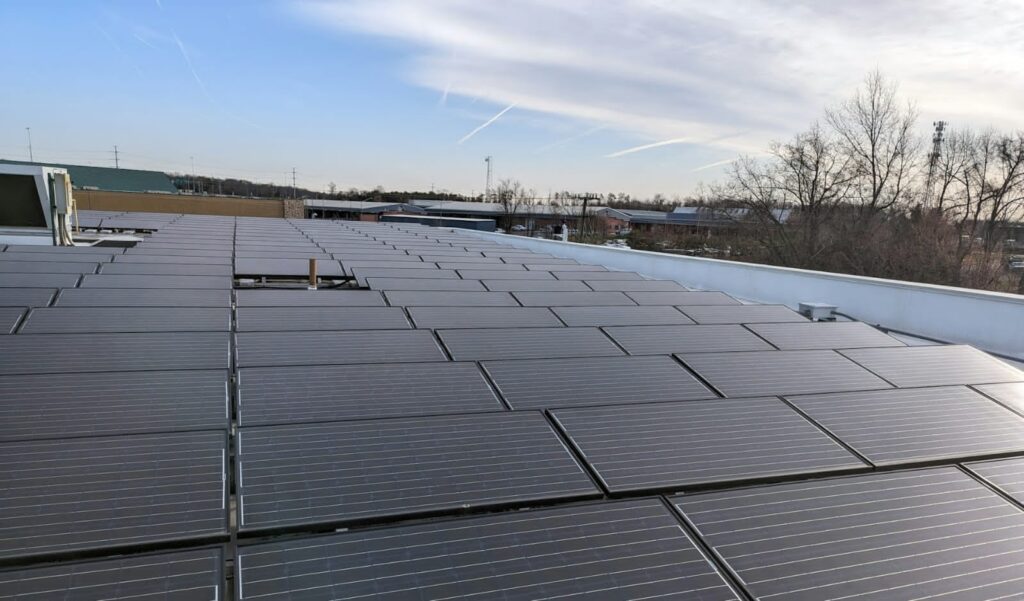Introduction to Commercial Solar Power
In today’s eco-conscious world, businesses are turning to renewable energy sources to power their operations sustainably. Among the various options available, solar power is one of the most efficient and accessible technologies. Commercial solar power systems, which harness the sun’s energy to generate electricity, are environmentally friendly and offer significant economic advantages for businesses.
Why Solar Power for Businesses?
Cost Efficiency
One of the most compelling reasons for businesses to invest in solar power is the substantial reduction in energy costs. After the initial setup, the energy produced by solar panels is virtually free, except for maintenance and monitoring expenses. Over time, the savings on electricity bills can be substantial, allowing businesses to allocate those resources to other areas like product development, customer service, or expansion.
Energy Independence
Commercial solar power systems enable businesses to generate power, reducing their dependence on local utility companies. This independence from the grid can be precious during power outages or fluctuations in utility prices. Businesses can enjoy a constant and reliable power supply by producing their electricity, ensuring their operations run smoothly.
Environmental Impact
Switching to solar power significantly reduces a business’s carbon footprint, which is crucial in today’s environmentally aware market. Companies using solar energy send a strong message to their customers about their commitment to sustainable practices. This can enhance brand reputation and customer loyalty, as more consumers prefer to engage with companies that are mindful of their environmental impact.
Implementation of Commercial Solar Power Systems
Assessing Suitability and Capacity
The first step in adopting commercial solar power involves evaluating the suitability of the business’s location and infrastructure for installing solar panels. Factors such as roof space, sunlight exposure, and local climate conditions play a critical role in determining the efficiency of a solar power system. If roof space is insufficient, businesses might also consider potential areas for ground-mounted solar panels.
Installation and Grid Integration
Once a site is deemed suitable, the next step is the installation of solar panels. Certified professionals should carry out this process to ensure compliance with local regulations and safety standards. After installation, integrating the solar system with the existing power grid is crucial to managing the flow of electricity and taking advantage of net metering policies where available.
Maintenance and Monitoring
Regular maintenance and monitoring are essential to maximise the efficiency and lifespan of a solar power system. Businesses should schedule periodic inspections to check for any damage to panels or wiring and ensure all components function optimally. Modern solar systems often come with monitoring software that allows businesses to track their energy production and consumption in real time, enabling proactive management of power resources.
Real-World Benefits of Commercial Solar Power
Case Studies and Success Stories
Many businesses, from small to large corporations, have successfully implemented solar power systems and are reaping the benefits. These include reduced operational costs, enhanced energy security, and improved public perception and compliance with global standards for sustainability.
The Role of Incentives
Governments worldwide offer various commercial solar power adoption incentives, such as tax credits, rebates, and grants. These incentives can significantly offset the initial cost of installation and make solar power a more attractive investment for businesses.
The Future of Commercial Solar Power
Technological Advancements
The future of commercial solar electric systems looks promising, given continuous advancements in solar technology. Innovations such as higher-efficiency panels, solar batteries for energy storage, and smart grid technology will further enhance the appeal and effectiveness of solar power for commercial use.
Market Trends
As the demand for renewable energy continues to grow, the solar industry is expected to expand significantly. This expansion is likely to drive down costs further and make solar power accessible to more businesses around the world. Furthermore, as public awareness and regulations around environmental impact tighten, increasing numbers of companies may turn to solar energy as a viable alternative to traditional power sources.
Powering The Future: Solar and Battery Packages for Sustainable Living(Opens in a new browser tab)
Conclusion
Harnessing the sun’s power through commercial solar power systems offers many benefits for businesses. The advantages are apparent, from cost savings and energy independence to positive environmental impacts and enhanced brand reputation. As technology advances and market conditions evolve, solar power is set to play a pivotal role in the global transition to sustainable energy. Solar energy is an excellent choice for businesses looking to future-proof their operations and positively impact the planet.
